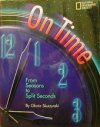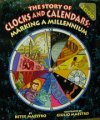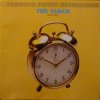A Change in Time Additional Information
Share this:
- Share via email (Opens in new window) Email
- Click to share on Facebook (Opens in new window) Facebook
- Click to share on X (Opens in new window) X
- Click to share on Pinterest (Opens in new window) Pinterest
- Click to share on Reddit (Opens in new window) Reddit
- Share to Google Classroom (Opens in new window) Google Classroom
- Click to print (Opens in new window) Print
To learn more about the history of daylight saving time, go to webexhibits.org/daylightsaving/ (Web Exhibits), scienceworld.wolfram.com/astronomy/DaylightSavingTime.html (Eric Weisstein’s World of Science), or en.wikipedia.org/wiki/Daylight_saving_time(Wikipedia).
Information about the coming change in daylight saving time in the United States is available at www.energy.ca.gov/daylightsaving.html (California Energy Commission).
For arguments against the use of daylight saving time, go to www.standardtime.com/(Sheila Danzig).
To find out what time it is in different parts of the world and to see whether daylight saving time is observed, go to www.worldtimezone.com/daylight.html (Worldtimezone.com), www.worldtimeserver.com/ (Chaos Software Group), or www.worldtime.com/ (HAB Software).
Books recommended by SearchIt!Science:
 |
On Time: From Seasons to Split Seconds— Gloria Skurzynski
Published by National Geographic Society, 2000.
“From seasons to split seconds” – this book takes you through the history of time. Find out how the present system of keeping track of seconds, minutes, hours, days, months and years evolved. Learn many fascinating facts about time from sundials to mechanical clocks and from ancient ship navigation to space-time. |
 |
The Story of Clocks and Calendars: Marking a Millennium — Betsy Maestro
Published by Lothrop, Lee & Shepard Books/William Morrow/HarperCollins, 1999.
What is time? The answer might seem simple, but after you read this book you will probably never think of time in the same way. Learn about the history of the calendar and the different types that were developed and used in different cultures. Learn about how hours and minutes were measured before clocks with gears and batteries. The book includes many interesting facts about time, a map with time zones and a chart with the days of the week in several languages. |
 |
The Clock— Trent Duffy
Published by Atheneum Books for Young Readers/Simon & Schuster, 2000.
We have come a long way in our search for an accurate clock. Read about the many ways that people have kept track of time. The book includes numerous photographs of early examples of clocks. |
Power Words
day The period of time that it takes for a planet to spin around once, completing one rotation on its axis. A day on Earth lasts 24 hours; a day on Jupiter lasts 10 hours.
time The past, the present, and the future. Time is a quantity that can be measured by counting the number of occurrences of a regular event, like a complete rotation of the Earth on its axis (a day) or a complete revolution of the Earth around the Sun (a year).
Copyright © 2002, 2003 Houghton-Mifflin Company. All rights reserved. Used with permission.
